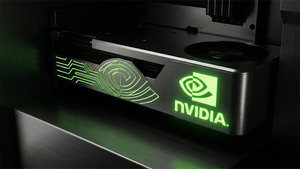DIY vs. Professional Home Security Installation – What’s the Difference?
When it comes to home security, there are two main installation options: a Do-It-Yourself (DIY) system or professional installation. But what’s the difference between the two? Keep reading to learn more about what sets them apart, their pros and cons, and more.
What is a Do-It-Yourself (DIY) security system?
DIY security systems are designed to be installed by the homeowner, with minimal technical know-how. These systems usually come pre-packaged, but can also be customized to the homeowner’s needs, and come with everything needed for installation. The components of DIY security alarm systems are typically wireless and can be installed by the homeowner without any assistance from a professional security company. In the event there are components that require wiring, the kits come with detailed instructions and a customer service contact to help walk the homeowner through installation.
What is professional security system installation?
Professional security system installation involves a security company coming to the home and installing a security system custom-tailored to the homeowner’s needs. Professional security companies will design a security plan specifically for the individual homeowner that takes into account the size of their home, where the vulnerable areas are located in or around the house, budget, etc. Along with customizing a plan best suited for each home, security companies also provide service plans so homeowners can have regular maintenance checks on their security systems.
Pros and Cons of DIY security systems
The main benefit of DIY security systems is the relative affordability since homeowners don’t have to pay for a security alarm specialist’s installation services. However, on the downside, DIY security installations mean the homeowner needs to take time out of their day to install and set the system up properly, which may be more time-consuming than anticipated.
Pros and Cons of Professional Home Security Installation
The main benefit of professional security system installation is that security professionals are able to customize the security plan specifically for each home. Additionally, with a professional security system, homeowners can rest assured knowing that their security system was installed correctly and will be maintained regularly. The downside of professionally installed security systems is that they typically cost more than DIY security systems.
How to Choose Between DIY or Professional Installation
When choosing between DIY or professional installation, the following should be taken into consideration:
- Budget – How much does the security system cost? Is the security company offering any discounts for their services?
- Time – How much time will it take to install and set up the security system?
- Complexity – What level of technical skills is needed to install and troubleshoot the security system?
- Customization – Does the security system offer customizable options that are tailored to your home’s needs?
Ultimately, deciding between DIY or professional security installation depends on one’s budget, available time and skill level. Professionally installed systems offer more customization and convenience, but come at a higher price tag. DIY security systems are an affordable option but require a greater effort in terms of setup.
Bottom Line
Security is of great importance and security systems are essential for protecting a home and family. Deciding between DIY security systems or professionally installed security systems will depend on budget, available time and skill level. The process may seem daunting at first, but with research and consultation from security professionals, homeowners can make an informed decision as to which security system will suit their needs best. With the right security system in place homeowners can rest easy knowing their home is safe.
Contact Information:
Name: Michael Bertini
Email: michael.bertini@iquanti.com
Job Title: Consultant
More News
View More




Recent Quotes
View MoreQuotes delayed at least 20 minutes.
By accessing this page, you agree to the Privacy Policy and Terms Of Service.